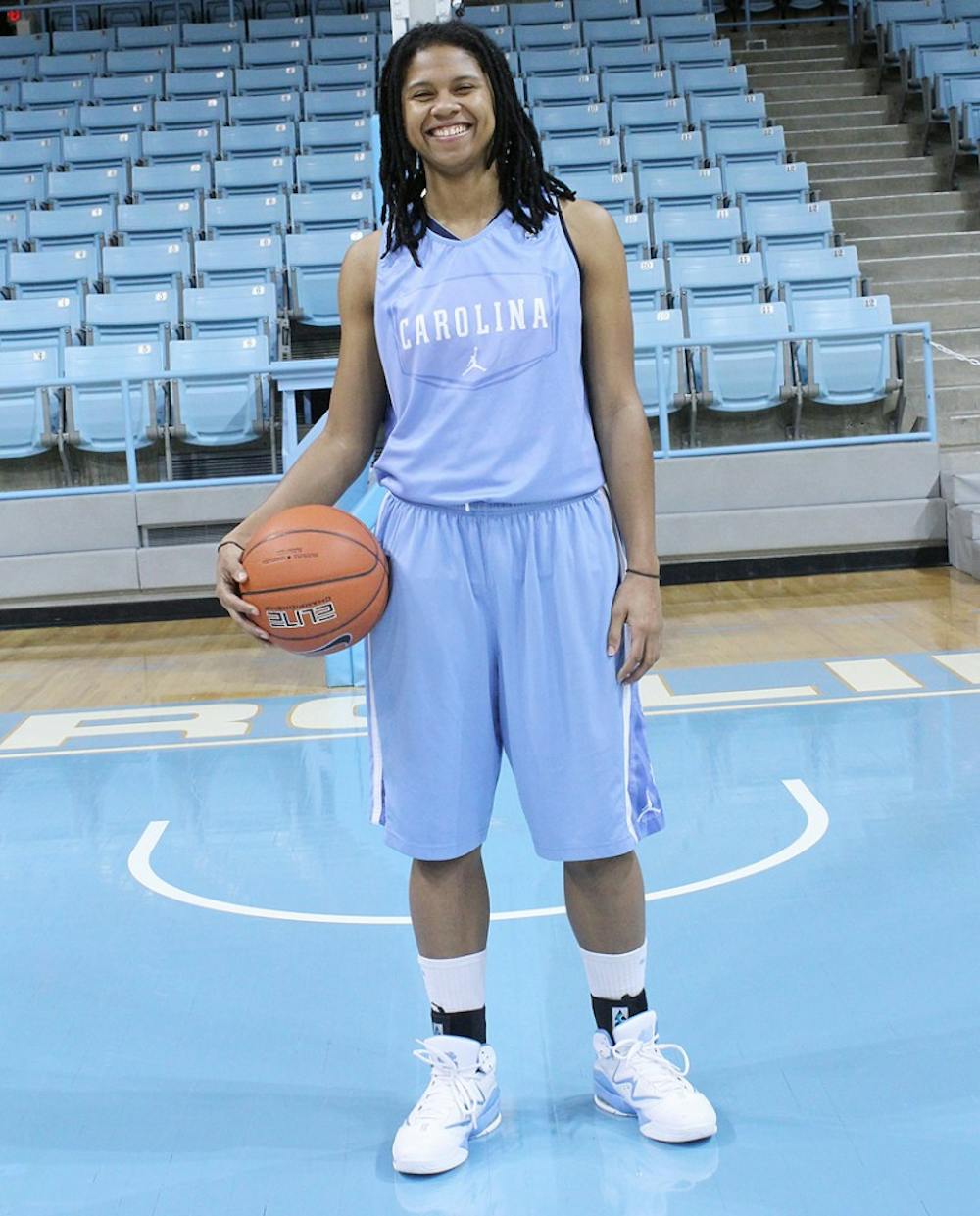Tierra Ruffin-Pratt might be listed on North Carolina’s roster as a guard, but to think that’s her only role would be a mistake.
This season, the 5-foot-10 junior has played every position on the court.
And when she was sidelined for the first 13 games of the season to recover from off-season shoulder surgery, Ruffin-Pratt suddenly found herself in yet another new role.
“I had to be able to talk and give my input, even to the coaches. They started calling me coach Pratt,” she said.
Redefining a role
While Ruffin-Pratt is known for her aggressive demeanor and on the court, taking the floor was not an option for the first half of the season.
The surgery repaired an injury sustained at a summer pick-up game that rendered her right shoulder immobile for five weeks. Once she returned to UNC, rehabilitation presented uphill battles.
Eventually, she cleared a major hurdle in recovery and was allowed to return to practice. Though she reached the milestone, being held out of competition was still frustrating to the veteran player.
“I felt all right before the games started,” Ruffin-Pratt said. “Then the games started, and I wasn’t able to play. Thirteen games went by, 15 games went by, and I’m just sitting on the bench and there was nothing I could do.”
UNC coach Sylvia Hatchell could tell that Ruffin-Pratt was frustrated by her inability to physically contribute during the games. Prior to the surgery, she had only missed two games in two seasons.
Hatchell would have preferred to have her most versatile player contributing on the court, but having Ruffin-Pratt’s help on the sidelines was the next best thing.
“(We) gave (injured players) responsibilities as far as getting signals and charting the opposing teams’ tendencies and that type of thing,” Hatchell said.




